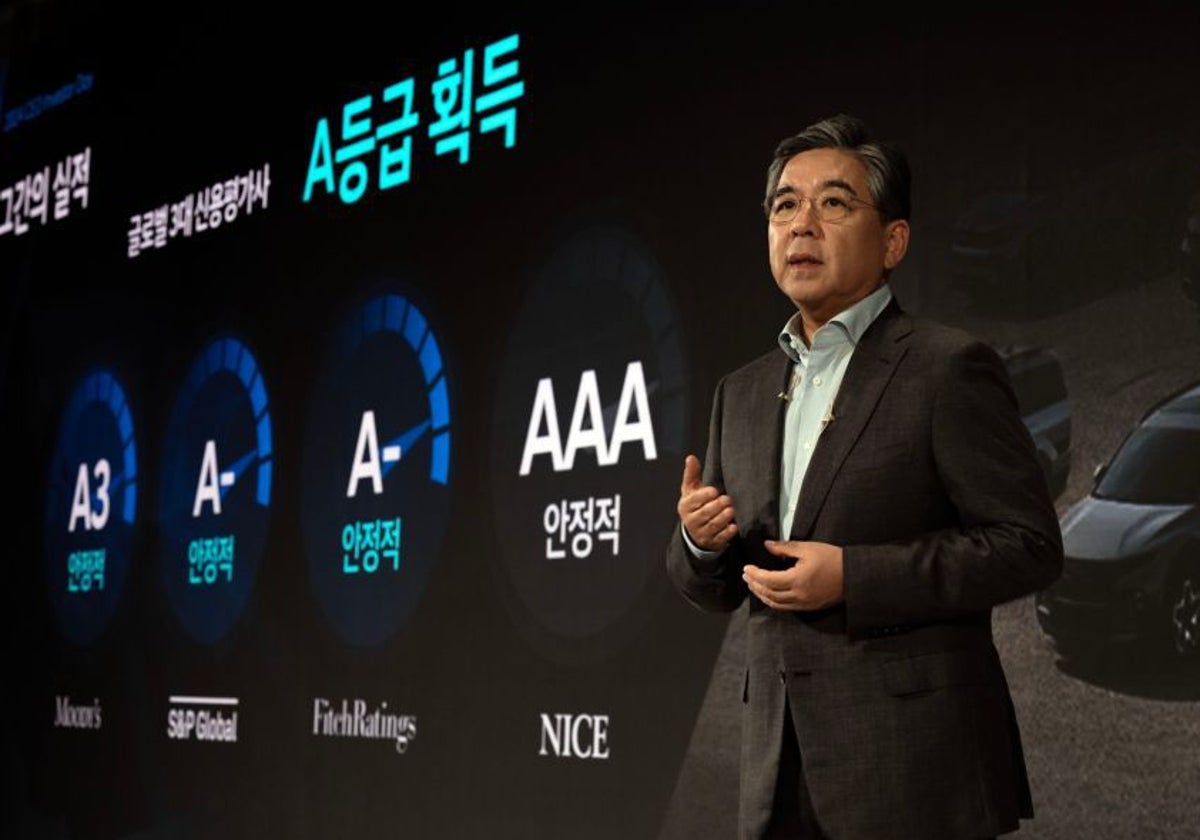

Sections
Services
Highlight

Juan Roig Valor
Viernes, 30 de agosto 2024, 11:05
As the end of the internal combustion engine era in Europe approaches, manufacturers are becoming more ambitious with their technology and growth plans. This is particularly true when they are experiencing a prosperous period and have the financial strength to make necessary investments.
The numbers speak for themselves: over the next eight years, the Hyundai Group – which also owns Kia and the premium brand Genesis – will invest more than €81 billion to boost its long-term strategic plan, dubbed Hyundai Way.
The primary goal is to increase its global sales to 5.5 million cars by 2030, about a third more than it currently sells. This would not change its third-place position – in 2023, it registered 4.2 million – behind Toyota and Volkswagen groups, but it would narrow the gap with the German consortium, which closed last year with over eight million deliveries.
Of the total projected for the group at the turn of the decade, they aim for two million of them to be powered by electric technology, with "a complete range" – meaning in every segment – of 21 zero-emission models, "from the most affordable to luxury and high performance."
In China, the largest automotive market, one of the propulsion solutions gaining acceptance among the public is extended-range electric vehicles. These have an internal combustion engine that acts as a generator to recharge a battery that powers an electric motor.
According to Hyundai, these vehicles can achieve a range of 900 kilometers and plan to introduce these variants in their US and China factories starting in 2026, expecting them to "serve as a bridge towards full electrification."
Hybrid vehicles will become an important part of the group's sales "until the market recovers demand for zero emissions," something they estimate will happen by 2030. By 2028, they estimate that 1.3 million of their registrations will come from hybrid models.
To support these ambitious sales targets, the group will accelerate the development of its plant in Georgia (USA). The so-called Hyundai Motor Group Megaplant America (HMGMA) will start its assembly lines in 2024 for hybrid and electric models such as the Ioniq 5, 9, and a large three-row zero-emission SUV.
This industrial footprint will be complemented by Ulsan (Korea), specializing in electric vehicles from 2026, Saudi Arabia, and Pune (India), with which the company expects to add one million units to its annual capacity. Additionally, in China and Indonesia, the consortium plans to establish CKD centers that will assemble vehicles from complete parts in those markets.
The Hyundai Way plan will feature a second phase called 'Mobility Game Changer,' where the group aims to give more weight to software and artificial intelligence. The intention is similar to what other manufacturers have expressed: they want digital services to become a recurring source of income.
To develop this, they are creating a new multimedia system based on a high-performance central unit. The goal is "to create vehicles that become machines that learn and continuously improve thanks to artificial intelligence."
Once equipped with this new system, expected to hit the market in 2026, Hyundai will begin selling autonomous vehicles to software companies for developing driverless services.
Publicidad
Publicidad
Te puede interesar
Publicidad
Publicidad
Esta funcionalidad es exclusiva para registrados.
Reporta un error en esta noticia

Debido a un error no hemos podido dar de alta tu suscripción.
Por favor, ponte en contacto con Atención al Cliente.

¡Bienvenido a TODOALICANTE!

Tu suscripción con Google se ha realizado correctamente, pero ya tenías otra suscripción activa en TODOALICANTE.
Déjanos tus datos y nos pondremos en contacto contigo para analizar tu caso

¡Tu suscripción con Google se ha realizado correctamente!
La compra se ha asociado al siguiente email
Comentar es una ventaja exclusiva para registrados
¿Ya eres registrado?
Inicia sesiónNecesitas ser suscriptor para poder votar.